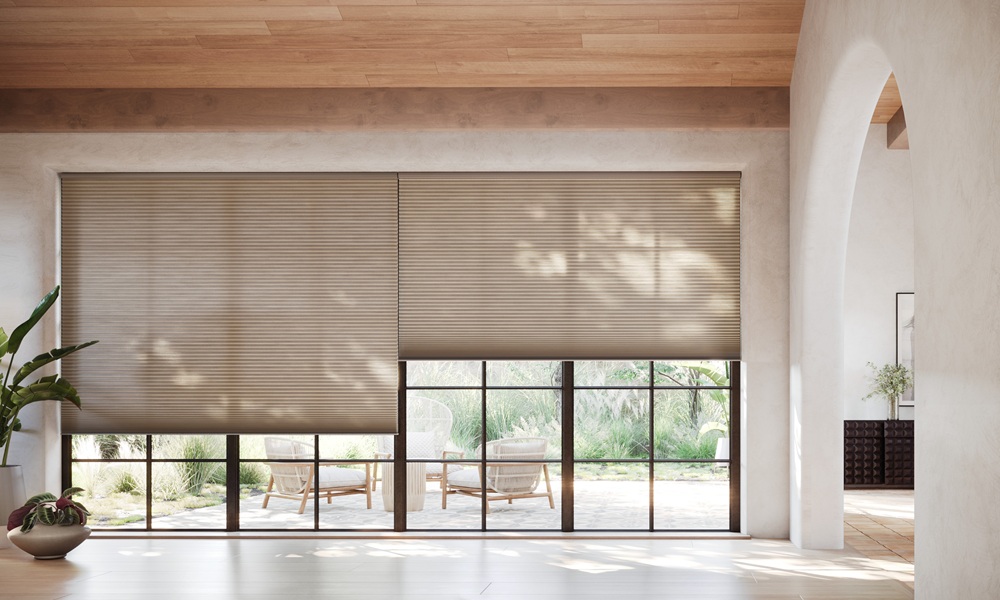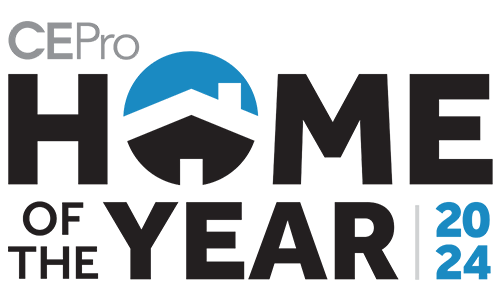New data from Hunter Douglas’ Custom Integrator Program suggests that limiting solutions to just roller and screen shades is resulting in integrators leaving money on the table in their custom home projectors.
According to data from the company’s Custom Integrator Program (CIP), which is designed to simplify the sales and installation process for dealers working with the company’s full portfolio of shades, roller shades make 41% of integrators’ unit sales and 39% of their total revenue, suggesting that integrators are missing out on the remaining 60% of the market’s potential and other automated shading solutions.
According to Hunger Douglas, an overlooked yet high-margin category is sheer shadings, which represent just 10% of unit sales but 17% of total revenue. Sheer shading solutions diffuse light while maintaining privacy, making them what the company calls a “premium option for homeowner” as well as a lucrative upsell for integrators.
The company boasts that its sheer shading solutions enhance natural light while providing flexible light control. These solutions also integrate with the company’s PowerView automation system.
Hunter Douglas’ data also found that its Duette Honeycomb line of cellular shades is a top choice, with 29% of total unit sales and 25% of revenue. The company further says these shades offer eligible for a federal tax credit rebate of up to $1,200, enabling integrators to highlight a clear return on investment.
The company also says its Roman line of shades and shutters are not the most commonly installed products, but these “premium” options are designed for luxury clients looking for sophisticated, custom solutions.
In a statement, Scott Stephenson, senior director of product global motorization, says homeowners, designers and builders need solutions beyond just roller shades.
“Our CIP data shows that integrators who embrace the full range of solutions stand to see not only greater revenue, but also stronger relationships with their customers,” Stephenson says. “By investing the time to learn a broader product mix, integrators can deliver more personalized experiences, ensure premium design aesthetics, and ultimately stand out in an increasingly competitive market.”

















